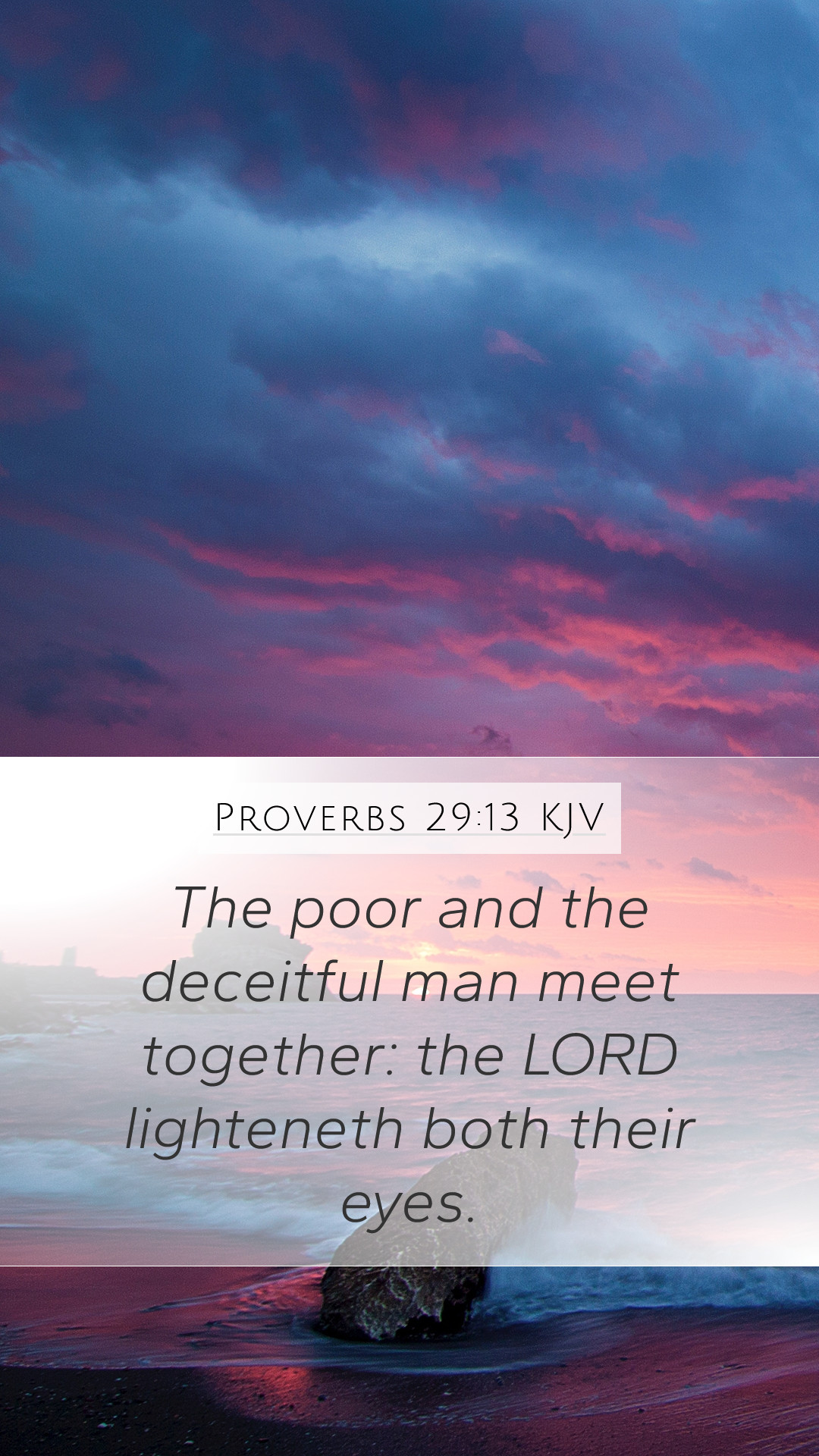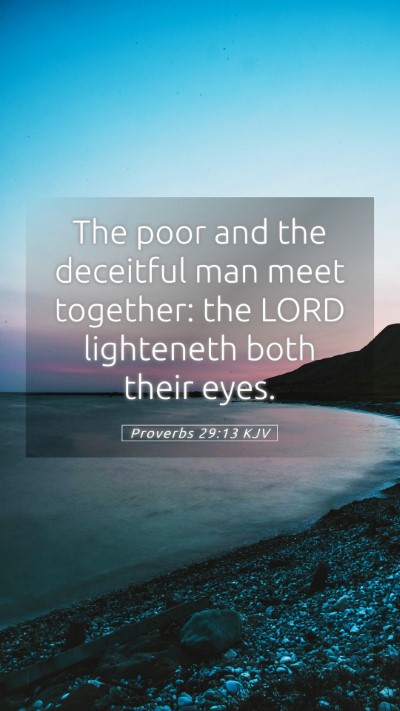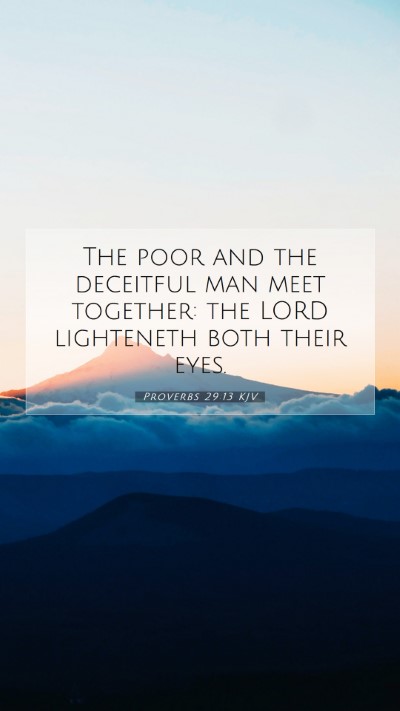Understanding Proverbs 29:13
Verse: "The poor and the deceitful man meet together: the LORD lighteneth both their eyes."
Overview
This verse from Proverbs reflects a profound truth about the nature of humanity and divine revelation. It suggests that regardless of social status, both the poor and the deceitful encounter God's light, illustrating His impartiality and grace.
Bible Verse Meanings
The combined insights from respected public domain commentaries enrich our understanding of this verse:
-
Matthew Henry:
Henry emphasizes that God's love and enlightenment are available to all, regardless of their moral or social standing. This highlights the universal aspect of God's grace and the need for truth in one's life.
-
Albert Barnes:
Barnes suggests that the phrase indicates a meeting point where the poor, due to their circumstances, and the deceitful, due to their actions, both require divine intervention. This signifies a call for honesty and righteousness amidst societal disparities.
-
Adam Clarke:
Clarke interprets the verse in the light of God's provision of insight and wisdom to all humankind, reinforcing the notion that spiritual blindness or deception does not deter God's outreach and the revelation of truth.
Bible Verse Interpretations
Several interpretations arise from this verse:
- The poor represent those in need, while the deceitful exemplify those engaged in dishonest practices.
- The phrase "meet together" underscores that all human beings share a common need for divine light to see and understand their condition accurately.
- It encourages believers to recognize that God’s light is essential for all and that earthly divisions become irrelevant in the face of divine truth.
Scripture Analysis
The analysis of this verse in the context of Scripture offers insights related to themes of justice, mercy, and the nature of God's interaction with all people:
- It affirms God's concern for the poor (Psalm 140:12) and critiques the moral integrity of the deceitful (Proverbs 12:22).
- The verse contributes to the broader biblical narrative asserting that divine revelation is not limited by human conditions (Job 33:30).
Historical Context
Understanding the historical context of this verse enhances our interpretation:
- The Proverbs, traditionally attributed to King Solomon, provide wisdom that addresses ethical and practical aspects of life in ancient Israel.
- The social hierarchy of ancient times placed the poor at a disadvantage, making the message of God’s impartiality revolutionary.
Application of Proverbs 29:13
This verse serves as a profound reminder of how individuals from varying backgrounds can find common ground in their need for God's enlightenment. Applications include:
- Encouraging compassion toward the marginalized and the deceitful, understanding they are also in need of God’s grace.
- Highlighting the importance of honesty and morality within communities.
- Fostering unity based on the acknowledgment that we all seek God's light in different forms.
Cross References
To deepen your understanding, consider reflecting on related verses:
- Psalm 146:7 - "Which executeth judgment for the oppressed: which giveth food to the hungry."
- Proverbs 14:31 - "He that oppresseth the poor reproacheth his Maker: but he that honoureth him hath mercy on the poor."
- Isaiah 25:4 - "For thou hast been a strength to the poor, a strength to the needy in his distress."
Conclusion
Proverbs 29:13 provides a critical lens through which we can view our social interactions and spiritual journeys. By applying its teachings, we foster a deeper understanding of Scripture and ourselves. Engaging in Bible study groups and utilizing Bible study tools can further enhance our grasp of such significant verses.


